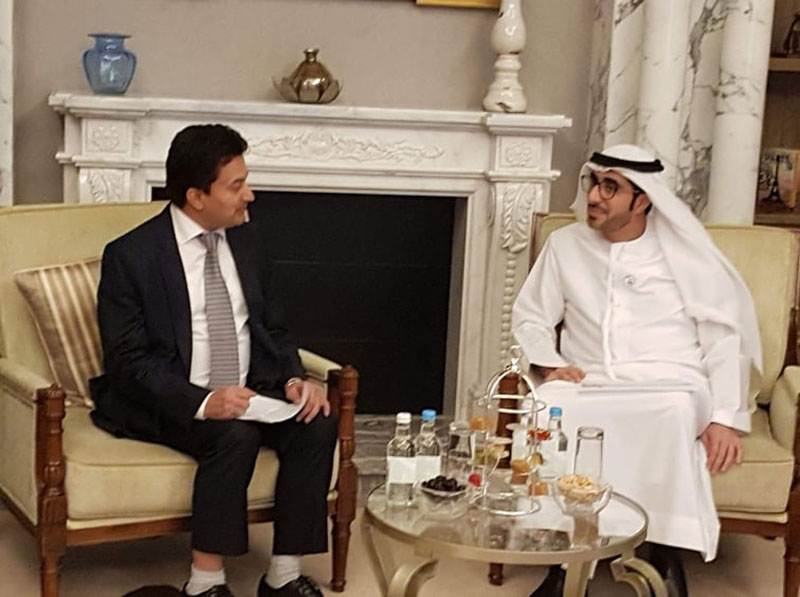Nepal-UAE labour JWC meet in Nov
Kathmandu, October 16
Nepal and United Arab Emirates have agreed to hold a labour joint-secretary level joint working committee (JWG) meeting next month to ensure efficient implementation of the revised bilateral labour agreement inked in June.
Nepal is scheduled to host the meeting in first week of November.
While attending the first day of a two-day fifth ministerial-level Abu Dhabi Dialogue today, Minister for Labour, Employment and Social Security Gokarna Bista and Minister of Human Resources and Emiratisation of UAE Nasser Bin Thani Al Hamali agreed to enhance cooperation for the benefit of both nations.
Abu Dhabi Dialogue kicked off today with the objective of ensuring security, human rights and social security of migrant workers in the destination countries. It is a common forum for the labour sending and receiving nations.
As per a press statement issued by the Ministry of Labour, Employment and Social Security, both the ministers have agreed to increase the minimum wages of Nepali workers employed in UAE in timely manner as per the earlier understanding. Similarly, Nepal and UAE will collaborate to enhance the skills of foreign job-seekers.
As per the ministry, discussions at the Abu Dhabi Dialogue will focus on the process of hiring and sending workers in a more transparent manner, while curbing illegal migration in the destination countries.
The labour ministers of 11 labour-sending and seven receiving nations are participating in the summit. The labour-sending countries are Nepal, Afghanistan, Bangladesh, China, India, Indonesia, Pakistan, the Philippines, Sri Lanka, Thailand and Vietnam. Similarly, the labour-receiving countries are Bahrain, Kuwait, Malaysia, Oman, Qatar, Saudi Arabia, and the UAE.
Senior officials are to discuss the four current initiatives of the Abu Dhabi Dialogue: The use of technology in managing the recruitment and deployment of workers; the provision of orientation and information programmes to workers; certifying and recognising skills; and the development of competency standards for workers.
Nepal also plans to discuss labour agendas with member states and trace out possible solutions to problems facing Nepali migrants.






